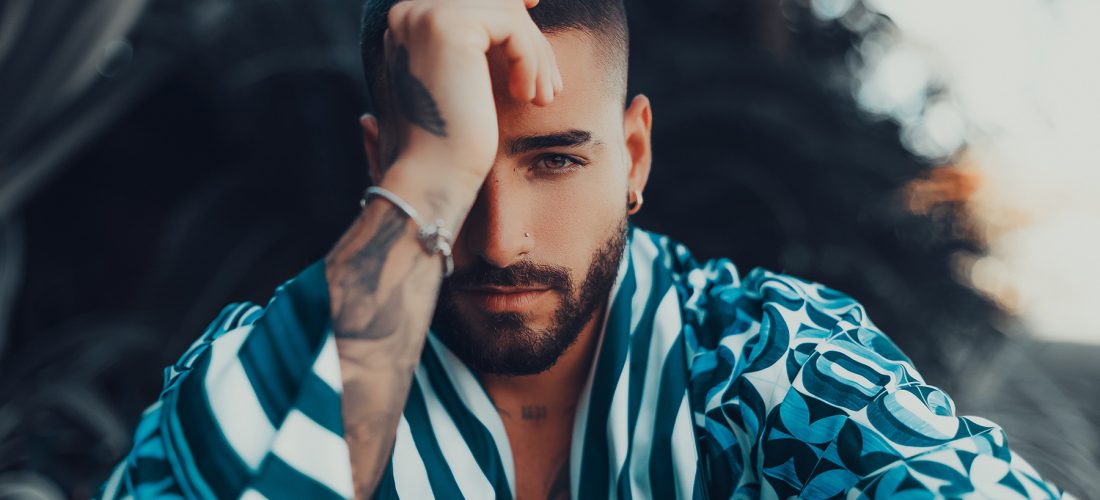Maluma Soaks in Some Reggae Vibes on ‘#7DJ: 7 Días En Jamaica’
While Puerto Rico gets much of the shine, thanks in no small part to its historic role in cultivating reggaetón’s roots as well as the contemporary exploits of one Bad Bunny, Colombia effectively serves as Latin music’s modern epicenter. Of the finite number of top tier Spanish-language artists active today, three boast origins in Medellín, the country’s second-largest city — including J Balvin and Karol G, who’ve become power players on the global pop stage largely by way of high-profile bilingual collaborations with the likes of Beyoncé and Nicki Minaj.
The most junior member of this class, Maluma rose up in the worldwide ranks somewhat differently than his peers. As 2017’s Bieber-infused “Despacito” dominated the Billboard Hot 100, the South American singer’s salacious “Felices Los 4” managed a contemporaneous 20 week run there. Judging by his remaining five appearances on that all-genre singles chart, a picture of the artist as a rare sort of chameleon has emerged. Who else could have found his way onto the port-mortem XXXtentacion amalgam “Arms Around You,” or nimbly mainstreamed the Brazilian funk ostentação of “Corazon,” or coaxed no less than The Weeknd to sing in Spanish for “Hawaí” remix? Such seemingly effortless contortions and magical reveals that yield commercial results distinguish him from those either tethered to genre or prone to crossover muddling outside their comfort zones.
It is this same globetrotting ethos that led to #7DJ, a mini-album recorded during what was apparently intended as a restorative retreat to Jamaica. Though the island’s legendary dancehall producer Bobby Digital is responsible for the dembow riddim that came to define reggaetón, Maluma’s latest represents less a homecoming than a pilgrimage, however problematic that potentially might be. Released by surprise this past Thursday, strategically timed with his 28th birthday, the project thankfully lacks the exoticized exploitation and tourist cosplay that too often comes with such records. Compared to the somewhat recent novelty singles like Daddy Yankee’s Snow retread “Con Calma” or Anuel AA’s Shaggy-interpolating “China,” tracks like “Desayun-Arte” or the dubwise “Peligrosa” exude a certain rootsy reverence with an air of quietude.
How Maluma achieves this fastidious equilibrium between his slick and showy catalog and these genuine reggae vibrations speaks well of #7DJ’s hybrid approach. He worked with local instrumentalists to get the bright organic highs and resonant timbral lows of “Love,” which also features Jamaican hitmaker Charly Black, while retaining the services of his go-to producers Edgar Barrera and the Rude Boyz. The end result rejects the flash and lewdness of his 2020 album Papi Juancho, which was as much a shrewd return to form as it was a retreat to smutty safety after the ambitious pop gestures of 11:11.
Even still, what keeps #7DJ from backsliding into gimmicky ephemera is just how well he maintains his signature Pretty Boy/Dirty Boy identity throughout. Ziggy Marley, nearly twice Maluma’s age, blesses the record with both his voice and vision on “Tónika.” The elder statesman’s sunny yet subdued verse has no discernible effect on the junior singer’s lyrics which, while far tamer than Papi Juancho’s raunchiest moments, still smack of sexual virility and socialization as seduction. By never losing himself in the moment to serve some irie trope, he preserves what endears him to his fans on what, in less capable or less confident hands, could’ve been a stopgap misstep.
